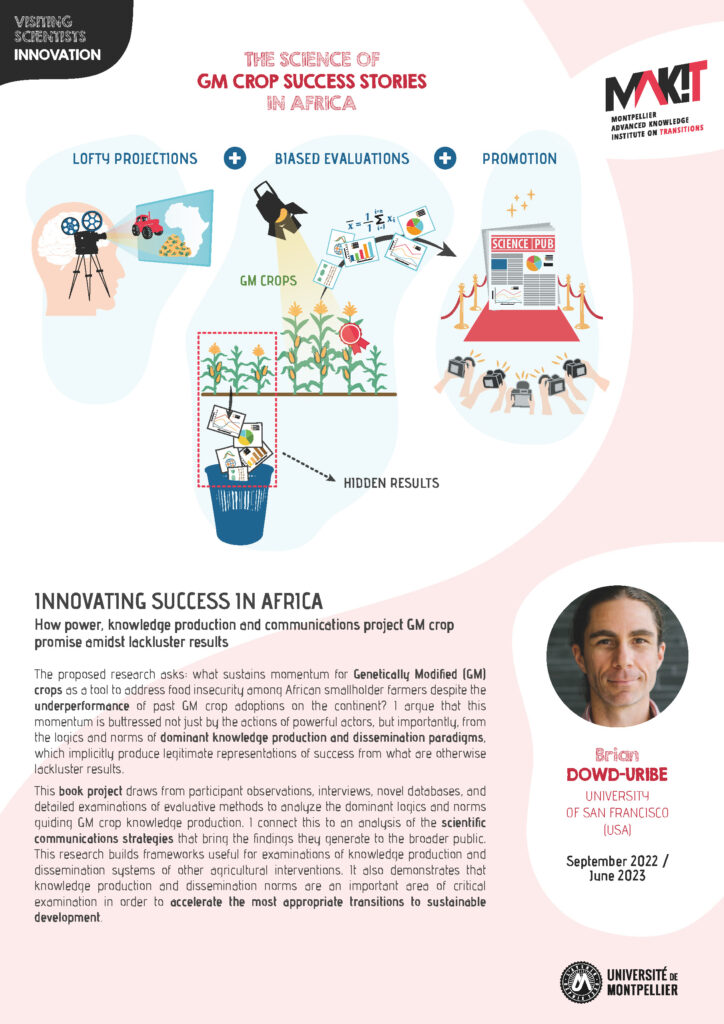Brian Dowd-Uribe
Brian Dowd-Uribe is associate professor in the International and Environmental Studies Departments at the University of San Francisco.
Dr Dowd-Uribe’s research examines how changes in food, agricultural and water systems affect producers, consumers and communities, primarily in West Africa and Central America. A main focus of his research is on the politics and knowledge production processes of new agricultural biotechnologies in Africa. He is co-founder of the ‘Mapping Biotechnologies in Africa’ project, a multidisciplinary project building robust public-facing datasets of biotechnologies in Africa, and Globus, a social justice journal of international studies.
Before joining USF, Dr Dowd-Uribe held positions as chair of the Department of Environment and Development at the UN-mandated University for Peace in Costa Rica, postdoctoral research scientist at the Center for Research on Environmental Decisions at Columbia University’s Earth Institute and environmental protection volunteer in the US Peace Corps in Togo, West Africa.
He holds an interdisciplinary PhD and MA in Environmental Studies from the University of California, Santa Cruz, and a BS in Ecology and BA in Latin American Studies from the University of California, San Diego.
The proposed research asks: what sustains momentum for Genetically Modified (GM) crops as a tool to address food insecurity among African smallholder farmers despite the underperformance of past GM crop adoptions on the continent? I argue that this momentum is buttressed not just by the actions of powerful actors, but importantly, from the logics and norms of dominant knowledge production and dissemination paradigms, which implicitly produce legitimate representations of success from what are otherwise lackluster results.
This book project draws from participant observations, interviews, novel databases, and detailed examinations of evaluative methods to analyze the dominant logics and norms guiding GM crop knowledge production. I connect this to an analysis of the scientific communications strategies that bring the findings they generate to the broader public. This research builds frameworks useful for examinations of knowledge production and dissemination systems of other agricultural interventions. It also demonstrates that knowledge production and dissemination norms are an important area of critical examination in order to accelerate the most appropriate transitions to sustainable development.
